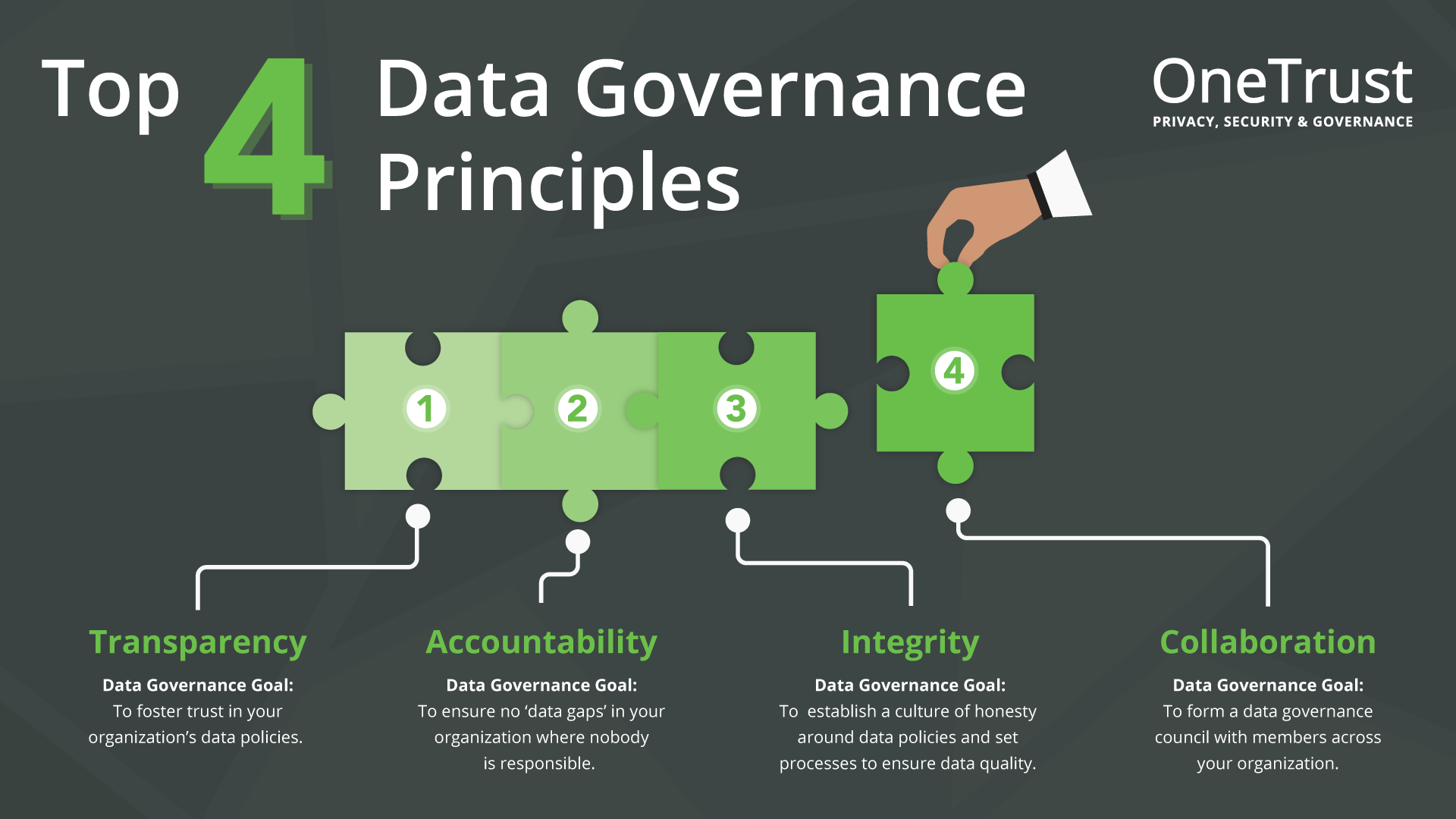1. Transparency
Having clarity on what data assets you have and spreading this knowledge across your organization and customers is of utmost importance for your data governance framework. Transparency and trust go hand in hand.
To have your employees and customers buy into your data governance policies, you need to build trust by being transparent about the data you collect, the purpose of the data, where it’s stored, and whom it interacts with.
Data Governance Goal: To foster trust in your organization’s data policies, both internally and externally.
2. Accountability
“It’s not my responsibility”. You never want to hear those words regarding data in your company. The concept of data stewardship comes into play here, where individuals become ‘stewards’ for data stored in different places across your organization. This involves moving away from the traditional viewpoint on data, which generally had the IT function as the decision-making body for data assets and data management.
Instead, set data definitions in place, look to identify key stakeholders across different departments, and establish them as data stewards, responsible for the data that’s relevant to their department.
Data Governance Goal: Ensure that there are no ‘data gaps’ in your organization where nobody is responsible.
3. Integrity
This can be summed up with “How good is your data?”. Making sure your data catalog is accurate, relevant, timely, and compliant with policies and regulations is critical in ensuring successful data governance.
Integrity also comes into play when dealing with how stakeholders discuss the impacts of decisions on enterprise data, and being honest regardless of the circumstances involved. The two sides of the integrity coin are truthfulness regarding the effects of data processes and maintaining the highest possible data quality.
Data Governance Goal: Establish a culture of honesty around data policies and set processes to ensure data quality.
4. Collaboration
We’ve all heard “Teamwork makes the dream work”. These sayings become clichés because they’re true. Departments within your company should have the opportunity to discuss the best practices to deal with data in different parts of the organization.
Setting effective data standards, and not idealistic ones, can only happen through inter-department collaboration. An extension of this data governance principle is to enable access to data through an intuitive catalog.
Data Governance Goal: Establish a Data Governance Council to set effective standards and metrics, and enable accessibility throughout your organization.
These four principles are the pillars upon which any effective data governance program is built. When they come together, it ensures a strong foundation for your data governance policies and processes as you enforce them throughout your organization.







































